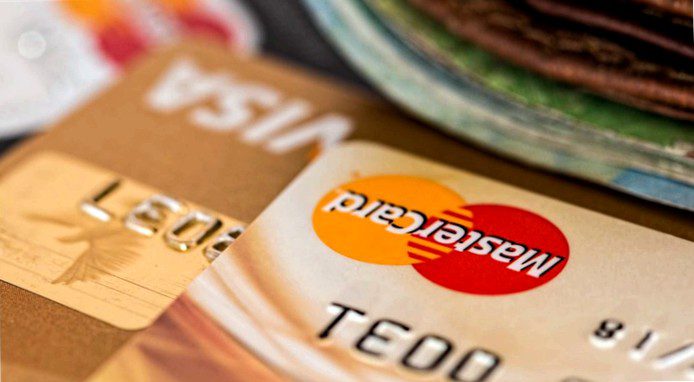
Banks are designed for sales. Employees are called bank advisors, but they are salespeople. The job of these employees is to sell the bank's products. In addition, employees can sell only the products of their own bank, even if there is a better or cheaper product available on the market.
So you don't fall into the sales trap, this post shows you five absolutely unnecessary bank products. The bank products mentioned here are either out of date or uneconomical to dangerous for the customer. All products bring the bank a high commission and are therefore sold preferentially by the "bank advisers".
5 unnecessary bank products
I will explain which bank products are important and sensible in a separate article. If you have one or more of the products mentioned here, you do not necessarily have to cancel it immediately. With some products, the loss in terms of the acquisition commission has already been incurred. Nevertheless, it is important to check how useful the bank product is. If you need help in making a decision, I can help you with that.
Certificates
Certificates are securities. Securities are traded on the stock exchange. Thus a certificate is not comparable with a savings investment. Certificates promise the customer an annual interest payment. The interest rate is usually significantly higher than the interest rate for a savings account, a call money account or a time deposit at your bank. Banks advertise with certificates partly with interest between 3 per cent and 6 per cent. Sometimes even more.
In times of 0 percent interest and negative interest rates this sounds tempting. Customers should always be aware of this: Anything that earns more interest than investing in a savings product carries a risk.
Here is a simple example from DekaBank with the 6.70% Allianz reverse convertible 06/2021. The following text is taken from DekaBank's basic information sheet. You can view it here. The bold marked passages have been highlighted by me:
The issuer may amend the terms and conditions of the product upon the occurrence of an extraordinary event (z. B. omission of the underlying value) change unilaterally. If, in the opinion of the issuer, a change is not possible or not economically viable, it can terminate the product with immediate effect. In addition, the issuer can also terminate the product in the event of legal changes. In these cases, the redemption amount may also be considerably lower than your individual purchase price (taking into account any costs and accrued interest). A total loss is possible. In addition, you bear the risk that the product is terminated at an unfavorable time for you and that you can only reinvest the redemption amount at worse conditions.
Basic information sheet DekaBank WKN DK0YGL
Without going into the further details of the certificate, the customer receives a security with an interest payment of 6.70% p.a. and at the same time bears the risk of a total loss.
The customer is also not safe from price fluctuations. If the Allianz share price is below 90% of a pre-determined value on the day of repayment, the customer does not receive the amount paid in in euros but the Allianz shares. Suddenly the customer is a shareholder without having wanted to be.
If the customer were to buy Allianz shares directly instead, the customer would be better off because:
- Allianz pays a dividend yield of about 5% per year
- the customer also profits from rising share prices (this is not possible with DekaBank)
- the customer bears the same risk as with DekaBank, only without DekaBank
The whole is for the DekaBank a lucrative business. For the customer not. DekaBank pays a high commission for the distribution to the respective bank.
Building savings contracts

Building savings contracts are sold as security for the future. Secure today already the interest for a building project in the future. In short, a building savings contract works as follows:
- As a customer, you decide today on a bauspar sum (for example, 100.000 euros).
- So you secure today the interest on the loan sometime in the future.
- For this bauspar sum the bank receives 1% commission. At 100.000 euros, the 1.000 Euro.
- Your building society contract therefore starts with -1.000 Euro balance.
- You save money into your building savings contract.
- In order to get the building savings amount, you usually have to save up 40%. At 100.000 Euro you have to pay 41.000 Euro to save. 40.000 Euro is 40% plus 1.000 Euro commission.
- Then the building society pays you the 100.000 Euro from. Your saved 40.000 Euro plus 60.000 Euro loan.
100.000 euros is not much when buying a home. Therefore the 100.000 euros often like equity capital at your house bank. But not completely. Since you will eventually have to repay not only the bank loan but also the loan from the building savings contract.
In addition to the building savings contract you need a bank loan. Of course, you don't know today how much money you will need in the future. You do not know what interest rate you will get in the future.
It is certain that the building society will never give you the best interest rate for the investment and the lowest interest rate for the loan at the same time. Therefore, you can also save and invest the money separately and get a bank loan in full.
No one will know what the interest rates will be in the future. But you never know if you will really buy a property in the future. At the end of the day, a building savings contract is an interest rate bet or an interest rate insurance policy. Bets and insurances always cost extra money. With a building society sum of 100.000 euros, this insurance will cost you 1.000 Euro.
Combinations with a building society savings contract are even more absurd for construction financing. Example:
- You buy a property
- You get a loan from the bank
- The bank sells you a building savings contract at the same time, so that you secure the interest in 10 years, when the loan expires
That is: Apart from the repayment to the bank loan you save money at the same time. Money that has a lower interest rate than the interest you pay to the bank.
If you waive the building savings contract, you are better off over the loan period:
- You save the commission for the building society contract
- You can use the savings installment for the building savings contract to pay off your bank loan
- So you have less debt in 10 years
- The refinancing in 10 years becomes more favorable thereby
- You pay less interest over the whole financing
If interest rate security is important to you, banks often offer a fixed interest rate of 15, 20 or 25 years. You usually pay this with higher interest rates.
Equity funds (with front-end load)

A share fund is a collection of individual shares. At this collection the customer acquires a fraction. Often you will find equity funds with a thematic focus. For example, European shares or shares from North America. Behind an equity fund there is usually a fund manager. This person is responsible for the good performance of the equity fund.
Customers usually pay an issue surcharge when buying an equity fund. This issue surcharge means that the customer buys the share fund more expensively than this is sold at the market. With many share funds the expenditure impact lies with 5 per cent. The fund company directly earns a profit of 5.
Example: A share of a stock fund costs the customer 100 Euro. However, if the customer would buy it and resell it immediately, the customer will get only 95. The difference is the issue premium. The bank usually gets this from the fund company. Customers start with the purchase of a share fund with output impact always in the minus. The share fund must first make 5% profit, so that the customer stands at 0% at all.
In addition, there are high management fees and sometimes performance fees for equity funds.
Management fee: the fund manager is paid for his work on a percentage basis. Management fees between 1% to 2% per year are not uncommon. The shares of the equity fund are reduced by this percentage. A part of the money also goes to the bank in the form of a portfolio commission. That is, the bank gets money because it sold the fund at some point to a customer. This is at the expense of the customer's return on investment. At the same time, many equity funds are less successful than a simple index like the DAX 30 or the S&P 500.
Success fees: If the fund manager is successful and does not generate a loss, the fund company retains a percentage of the success. This profit participation is with some funds between 10 and 25 per cent of the gained profit. With a 15 percent annual return and a 10 percent performance fee, the client is missing a 1.5 percent return at the end of the year. To earn more on the success fee, some equity funds charge it monthly or quarterly. Thus, bad months fall less into the weight for the fund company.
For years, customers have been much better off with an ETF. What an ETF is exactly is explained in the linked article. ETFs incur only a fraction of the cost compared to an equity fund, improving end-user returns. This is why banks are reluctant to advertise ETFs.
With many free depots such as Trade Republic, customers also receive a wide selection of savings plans. With a free ETF savings plan, customers take advantage of the cost average effect, pay lower costs compared to stock funds, and are often no worse off than them in terms of performance. Numerous studies show that, on average, actively managed equity funds perform the same or worse than the benchmark index.
Credit for consumer goods
Loans for consumer goods are partly to blame for the creeping over-indebtedness of low-income households. Loans for consumer goods are used to enable the purchase of a television, cell phone, or furnishings such as a sofa, cabinet, or dining room table.
Any purchase of consumer goods that is not covered by savings will result in a monthly repayment to a bank. This additional monthly installment reduces the household's disposable income. As shown in the budget book, this reduces the monthly savings rate or even provides higher expenses than income. Then over-indebtedness threatens.
Some of the loans even offer zero percent financing, making them even more enticing. Customers are already asking the question, "Why pay the full amount now when you can pay off the same money over several months without interest?"
A loan is always a repayment obligation for a benefit received in the future for a benefit received today. Consumption should always be financed from current income or savings, otherwise the risk for over-indebtedness increases. In over-indebtedness, expenses are higher than income. Debts are often also a mental burden.
Stay away from residual debt insurance
Customers should never take out a loan with residual debt insurance. If the bank links the conclusion of the loan to the conclusion of residual debt insurance, customers should definitely end the conversation and leave the bank. The bank wants to shift its own risk to the customer via residual debt insurance. The cost of residual debt insurance is borne by the customer and this cost increases the cost of the loan.
When a loan makes sense!
The purchase of a property is usually possible only through a loan. However, a property for own residential purposes is not a consumer good but usually saves the buyer rent payments. A value is created for the future.
What about financing a car? Personally, I believe that the following also applies here. Don't buy anything you can't afford to buy. A car is a gigantic cost. If you keep a budget book, you will see this. In the article on Saving More Money, I show what it really costs to buy a car. Many use a car as a status symbol and at the same time destroy their hard earned money.
If you need to buy a car, use the tips in the post on structuring money and saving for a car. If you can't afford the savings rate today, you won't be able to afford the loan rate either.
Golden credit card

The Gold credit card, as well as the Black or Platinum credit card, is a regular credit card combined with insurance packages. This combination should offer added value for the customer. Add value that customers are happy to pay money for. This added value costs between 50 euros and 120 euros per year, depending on the bank.
Often travel cancellation insurance and / or international health insurance can be found in the insurance package. Often other unnecessary insurances are advertised.
With many credit cards, however, it's important to pay attention to the fine print. Some of the insurances are only effective if the trip or the product to be insured was paid with the credit card. Others have a high deductible. For example, if the cell phone is lost, the owner has to pay 250 euros on his own. Owners of a Golden Credit Card should also check whether taking out the required service separately with a direct insurer might not be cheaper.
In addition, many customers of a gold credit card are overinsured. For example, if you are an ADAC member and have a Golden Credit Card, you will often find the same benefits in both products and thus pay twice.
A Golden Credit Card is not worth it for everyone. Many customers can save the annual costs of 50 to 120 euros. Depending on the insurance package and annual price, the Golden Credit Card is worthwhile for people who travel a lot. In addition, close attention must be paid to the insurance conditions.